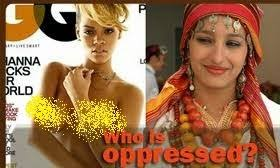
Equality: Men and women are absolutely equal with regard to their human status. The Qur’an, and the Prophet (peace be upon him), stress the equality of the two sexes in clear terms. The Qur’anic address always applies to men and women equally, at times the women and men are also addressed together:
Yet there are occasions where women are addressed in the Qur’an on their own, with matters that apply to them only. On the contrary, Islam stresses equality of treatment of sons and daughters. Allah says in the Qur'an:
"Mankind, remain conscious of your Lord, who has created you all out of a single soul, and out of it created its mate."(Qur’an;4:1).


